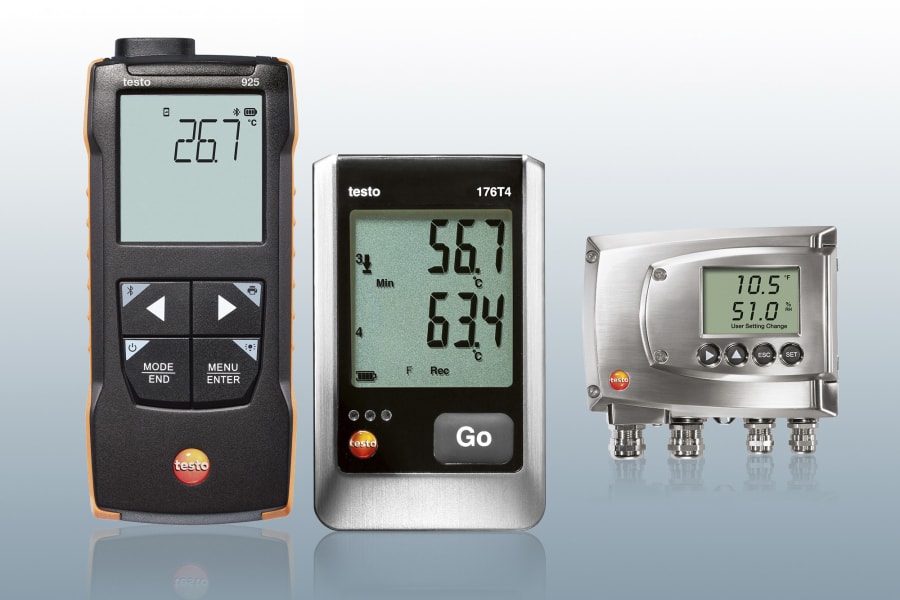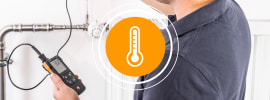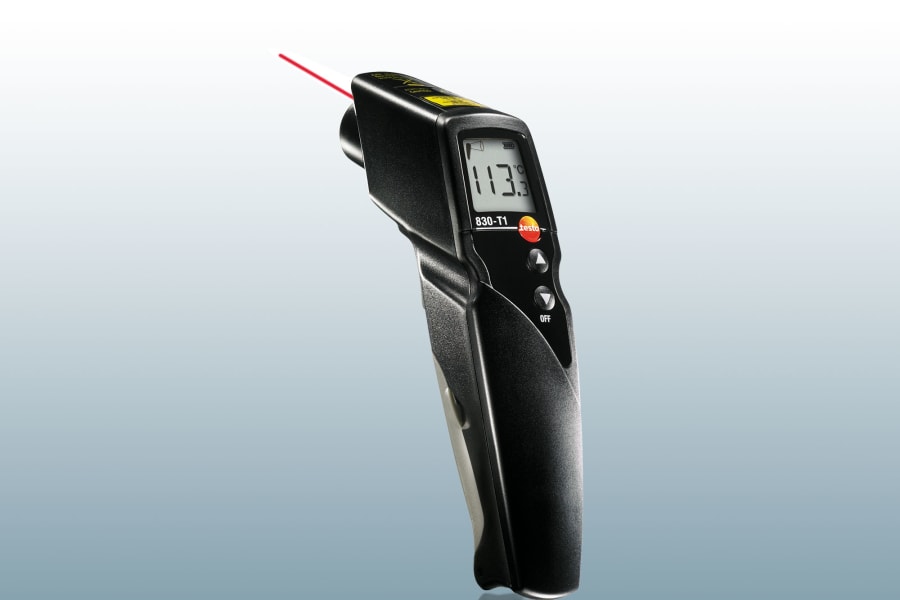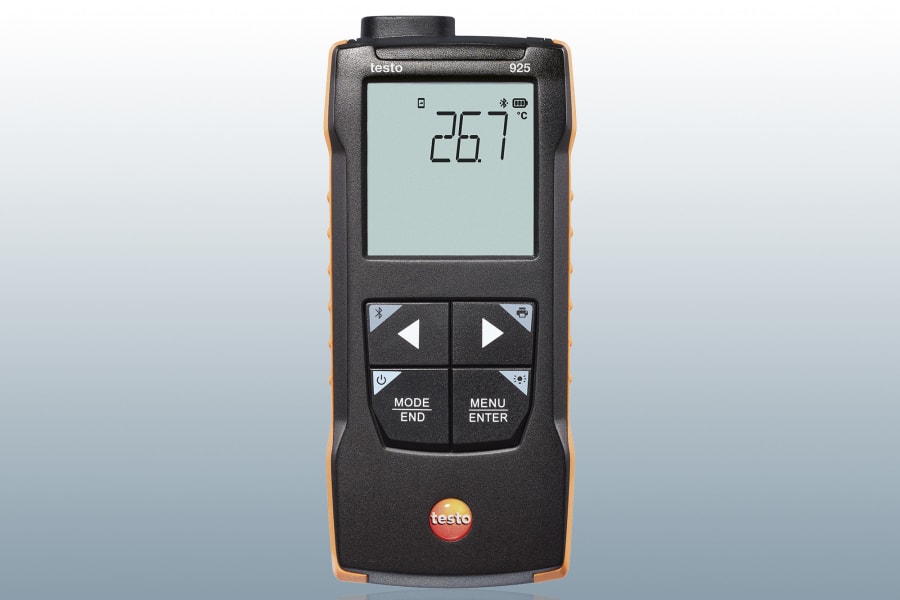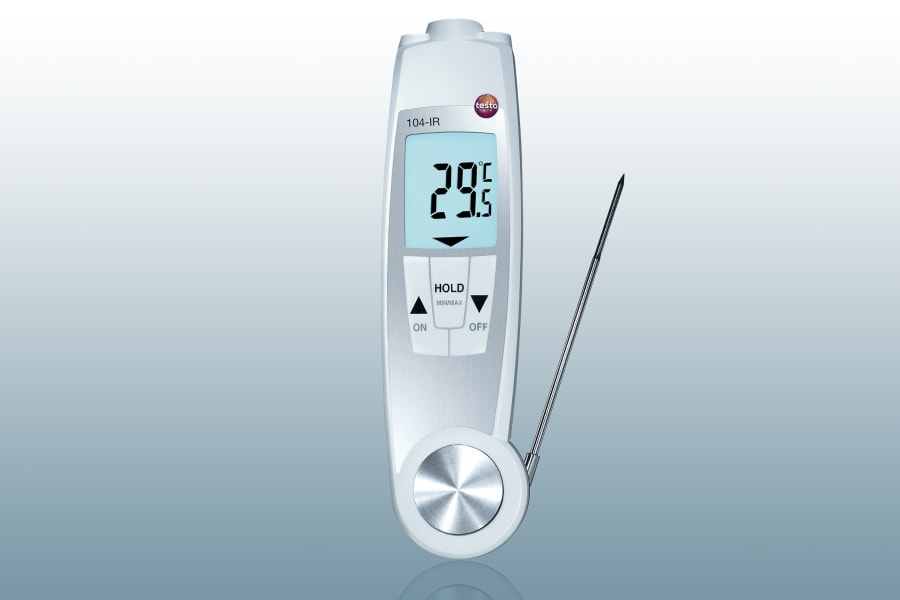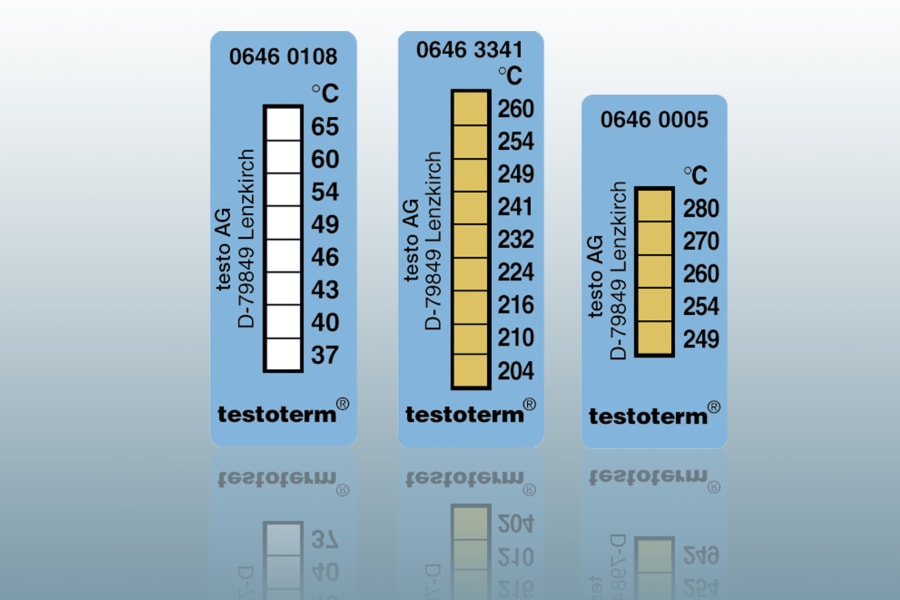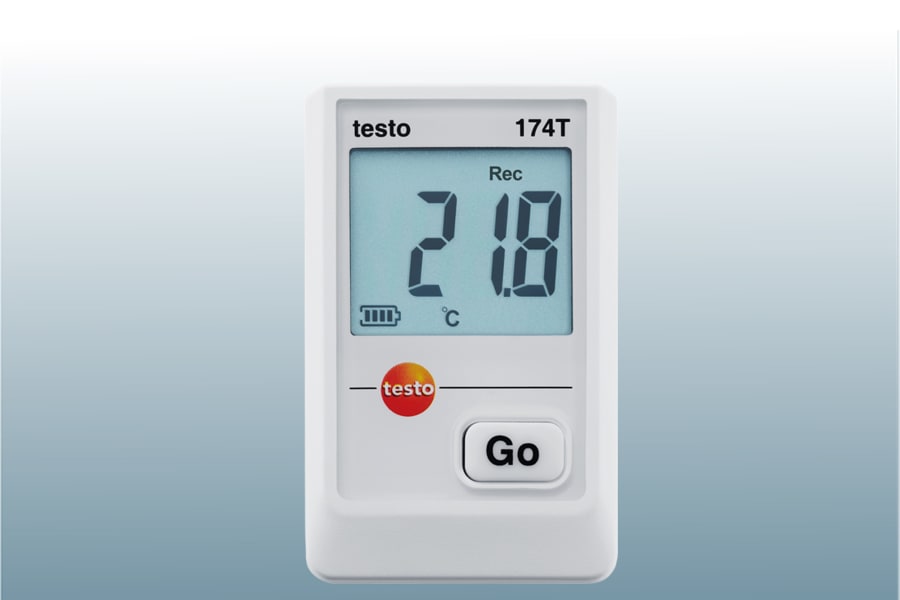Temperature measuring instruments

Thermometers to meet every challenge
There is surely hardly any more important measurement parameter than temperature. We are confronted with it on a daily basis and most people have individual preferences as to what exactly the right temperature is in specific situations. And this is where the greatest problem actually lies: people only feel temperature.
However, temperature measuring instruments have to be used for objective and comparable results. Depending on the specific application, you will find different thermometers, temperature meters or digital thermometers from Testo.
A Testo temperature meter offers you the following
Robust construction, even for tough practical use
High-precision sensor technology for reliable and accurate measurement results
Comprehensive selection of probes for your temperature meter - with customised products also available
Calibration and servicing from one provider
Measuring instruments for temperature measurement
Where do you want to measure temperature?
Temperature measuring instruments in use
The fields of application for temperature meters, digital thermometers and temperature measuring instruments are very varied. Here are just the most important ones:
Spot checking of food
Temperature monitoring of food transportation
Measuring the temperature in the centre of flue gas flow in chimneys/flue gas ducts
Measurement of different air temperatures
Surface measurement for checking the pre-heating temperature when welding
Immersion measurement in chemical solutions for maintaining temperatures during etching processes
Surface temperature measurement on bearings and gear mechanisms in mechanical engineering

Thermometers operated by smartphone
Compact measuring instruments for your smartphone
Our all-rounders for all important measuring tasks. Members of the Smart Probes family are not just temperature measuring instruments. These innovations also include pressure and flow meters, all fully operated via the testo Smart App.
testo Smart Probes VAC kit
The testo Smart Probes VAC kit enables you to measure temperature, speed and air humidity, as well as calculate volume flows. Ideal for air conditioning and ventilation systems.

Tips and tricks for
temperature measurement and monitoring
A temperature meter in itself means you have already taken the first step. However, you need to bear a few things in mind for really efficient and precise temperature measurement.
With your temperature measuring instrument, choose a probe immersion depth of 10 to 15 times the probe diameter. This reduces measurement errors. In addition, it helps the accuracy of the measurement result if you keep the liquid moving during the measurement.
In this case, the probe head is placed vertically onto the surface. Here it is important to ensure that neither the contact surface of the probe head nor the measurement object are uneven, as this can provide inaccurate measurement.
When measuring moving air with a temperature meter, the measurement probe is simply introduced into the environment being measured. Due to its special design, the air probe has a very short response time. The measurement result can be improved by moving the probe through the air at 2 – 3 m/s during the measurement.

More measuring instruments from Testo
There are applications where a temperature meter is not enough. For instance, when it is a case of monitoring temperatures over the long term and reliably recording the readings. This is where temperature data loggers are used. The small aids are ideally suited for temperature monitoring, making work a little bit easier every day for quality managers and facility managers all over the world.
When you need to integrate temperature readings seamlessly into automated building services, then it is temperature transmitters that are required. First of all, they measure the temperature, just like a temperature meter – however, they then convert the measuring values into a standardised electrical signal which can be further processed to control specific procedures.
In the broad spectrum of temperature measurement, particularly high importance is attached to surface temperature measurement. Because it is not just in industry, trade or facility management that a surface temperature measuring instrument is used. The food industry is also – and above all – the sector where this measurement method is commonly used. In the end, spot checks on the quality of food can be carried out quickly and reliably using surface temperature measurement. And precise measurement of the surface temperature often makes laborious measurement of the core temperature unnecessary.
